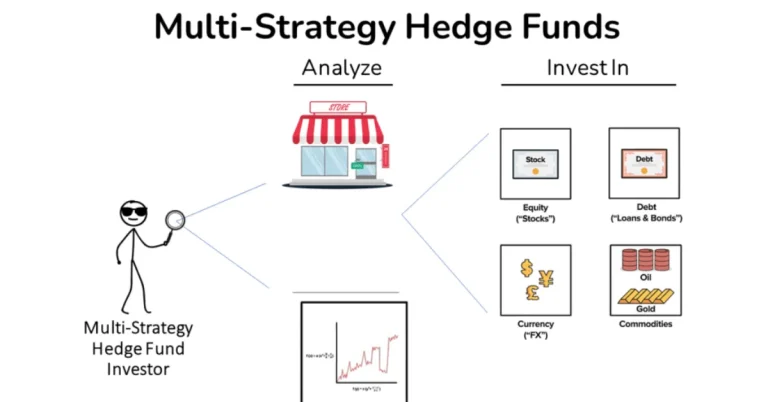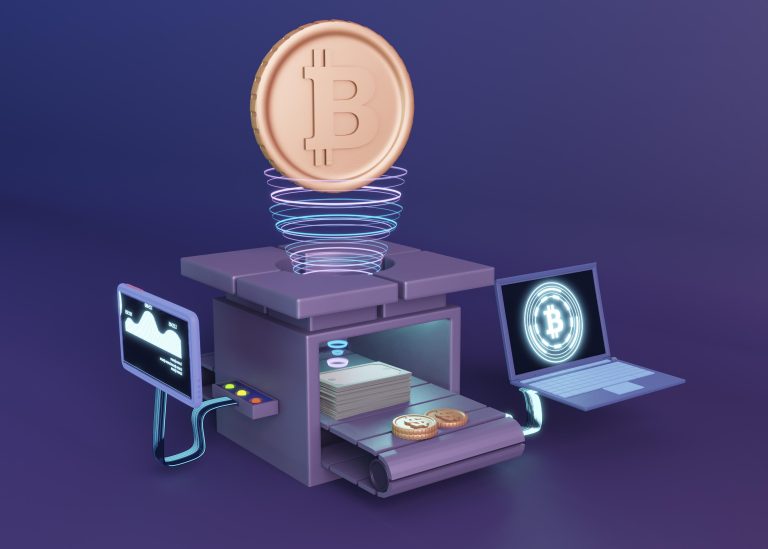Litecoin vs Ethereum: Key Differences and Which Is Better?
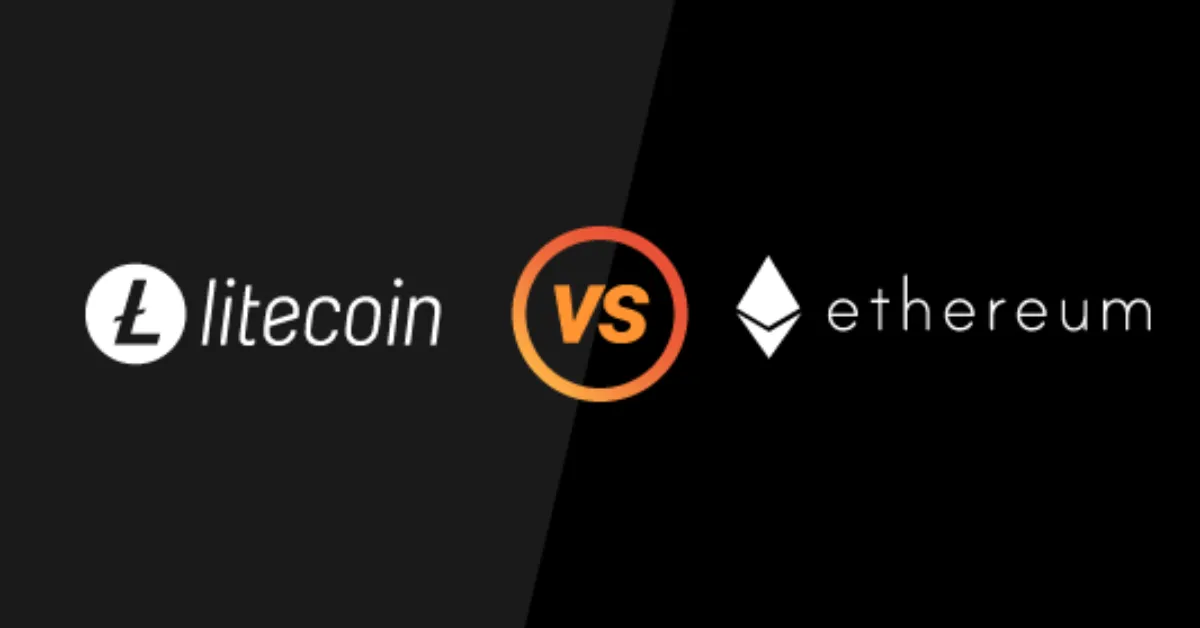
Litecoin vs Ethereum is a debate that continues to shape the world of cryptocurrencies. Today’s world offers an unexpected way of exchanging money and purchasing items online, one of which is cryptocurrencies. The best-known to those who are aware of the market are Litecoin and Ethereum. Both of them have their sense of flavour and fanbase.
Cryptocurrencies have changed the script on how we think about money, payments, and technology. Litecoin are a popular choice and they are simple, fast, and built for getting the job done. Ethereum is the other popular option that you might hear of, and it is more like a highly advanced powerhouse of decentralised apps and smart contracts.
The Litecoin vs Ethereum question leaves many users wondering which one is worth their time, money, or attention. This article shall answer all such doubts and explain their key differences, and help you figure out which might be the better pick for you in the Litecoin vs Ethereum debate.
What Is Litecoin?
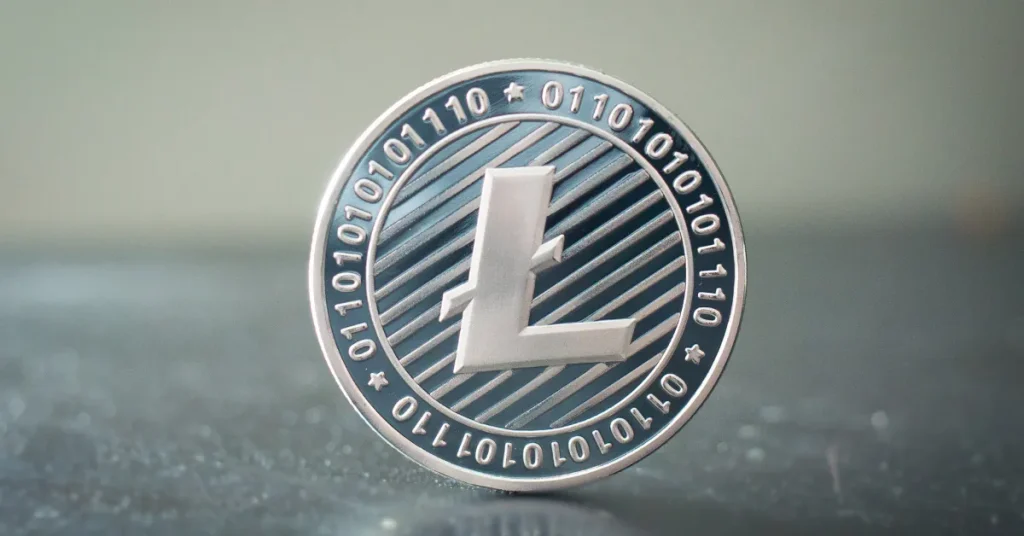
Charlie Lee is a former Google engineer, and he was the one who launched Litecoin in 2011 with the intention of making a cryptocurrency that is faster and cheaper than Bitcoin. People shortly started referring to Litecoin as Bitcoin’s scrappy younger sibling, as they were cheaper.
It is designed for everyday stuff like buying a burger or sending cash to a friend overseas. The working of these coins is similar to that of Bitcoins, which run on a proof-of-work system. It only has certain differences that were made to adjust the speed and accessibility.
Core: A digital currency for quick and low-cost transactions.
Block Time: The block time is faster as it has a new block every 2.5 minutes. This is four times faster than Bitcoin’s slow 10-minute pace.
Total Supply: It has a supply of 84 million LTC. Compared to Bitcoin’s 21 million limit, it is much bigger, but with a bigger pool.
Mining Setup: It uses the Scrypt algorithm. It has less power consumption than Bitcoin’s SHA-256. Regular users with decent computers can still mine it.
In the Litecoin vs Ethereum comparison, Litecoin has consistently delivered on practicality and ease of use. The coin doesn’t focus on reinventing the wheel, but it only makes it spin faster and cheaper. You can use it to pay for stuff at places that accept crypto. Some regular online stores take these as payment.
What is Ethereum?
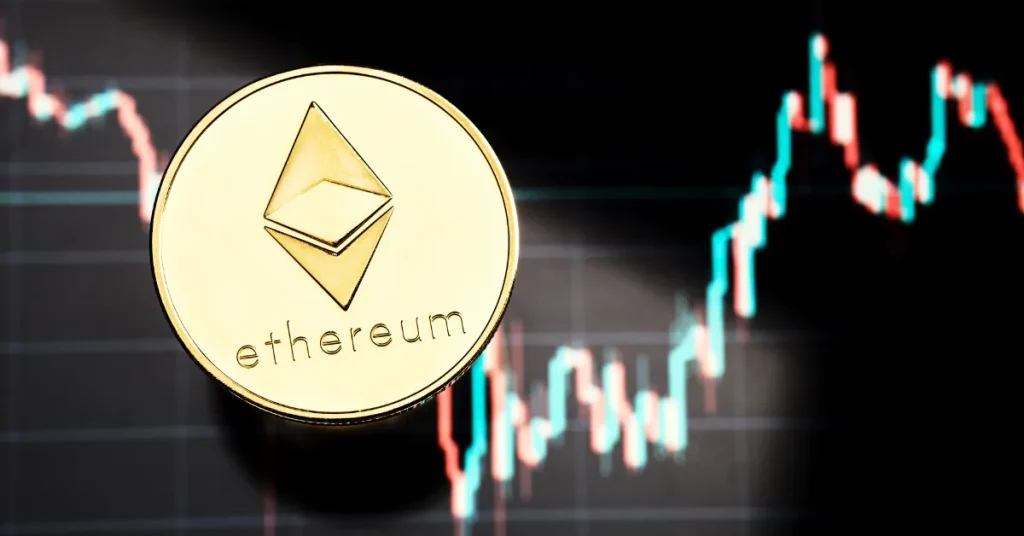
In the Litecoin vs Ethereum landscape, Ethereum emerged in 2015 as a brainchild of Vitalik Buterin and a team of visionary developers. Ethereum plays a little different role compared to Litecoins as it’s not only about sending money from point A to point B. It’s a full-on platform where developers can build all sorts of wild stuff. The options to explore using Ethereum cover automated contracts, decentralised apps, and even digital art markets.
Core: It is an arena for decentralised apps and smart contracts that are fueled by ETH.
Block Time: The block time is 12-15 seconds. It makes it faster than Litecoin.
Total Supply: No hard limit here. Ethereum’s supply grows through staking rewards. Some ETH might get burned to keep things in check.
Consensus Shift: Used to rely on PoW but switched to proof-of-stake in 2022 with the Merge.
Ethereum is the backbone of a ton of cool projects. It supports decentralised banks like Aave, NFT marketplaces like OpenSea, or even crypto games. It’s less about buying coffee and more about building the future of the internet.
How They Stack Up?: Key Differences
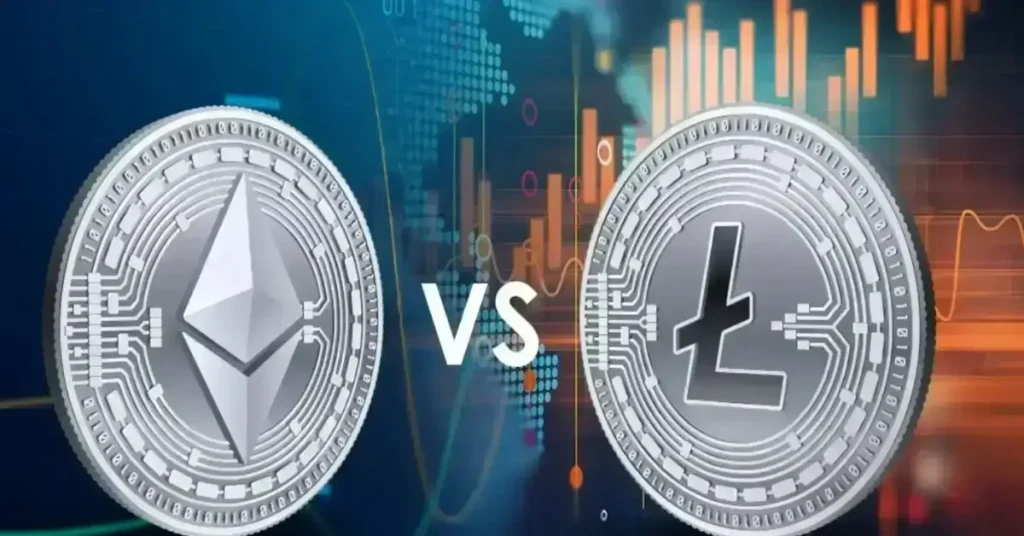
The Litecoin vs Ethereum comparison highlights how both rely on blockchain technology but play in different arenas. They are still playing different games with their own sets of advantages. Here are some of the differences between the two of them.
1.What They’re Built For
Litecoin: Litecoin is all about being a fast and cheap way to pay for stuff. It’s simple, reliable, and doesn’t try to do too much.
Ethereum: This one’s for the big dreamers. Ethereum lets developers code smart contracts without a middleman. It’s the foundation for things like decentralised finance. You can lend or borrow crypto, where digital art can sell for millions.
2.How do They Secure the Network?
These coins use networks that validate transactions and keep things secure. It is a big differentiator for both guaranteeing different feasibility. This is a major point in the Litecoin vs Ethereum comparison.
Litecoin: It follows PoW and uses the Scrypt algorithm. Scrypt’s less demanding than Bitcoin’s setup. Users don’t need a warehouse full of fancy machines to mine it. It’s still energy-heavy.
Ethereum: It has used PoS since 2022. Validators “stake” their ETH to secure the network. It’s way greener and cuts energy use by nearly 99.95%.
3.Speed and Cost of Transactions
It is a big factor of difference as speed is equivalent to convenience. Nobody wants to wait forever or pay a lot to move their crypto around. Litecoin vs Ethereum becomes a practical question when comparing transaction speed and fees.
Litecoin: Litecoin is quick for a PoW chain and supports a 2.5-minute block time. The related fees are dirt-cheap, and often less than a penny. It makes it great for small transactions.
Ethereum: Ethereum has a faster block generation at 12-15 seconds, but the fees can be a little high. The Layer-2 solutions like Arbitrum of the set-up have brought costs down, but it’s still pricier than Litecoin for basic transfers.
4.Supply and Scarcity
The other important differentiator is how much crypto exists and how it’s presented out there. Supply is a key aspect in the Litecoin vs Ethereum discussion.
Litecoin: These coins have a maximum limit of 84 million coins. There are about 75 million already out there as of 2025. They are thus available on a much wider scale compared to that of Bitcoins.
Ethereum: There are no limits with ETH, but its supply growth slowed after the Merge. A 2021 upgrade (EIP-1559) burns some fees. There are about 120 million ETH floating around now.
5.Smart Contracts and Programmability
Litecoin: It doesn’t do smart contracts. There are some struggles with stuff like OmniLayer for basic token creation, but it’s not Litecoin’s thing. It’s built for sending and receiving only.
Ethereum: It is the king of smart contracts. It lets developers build everything from lending platforms to virtual worlds. It’s why Ethereum powers so much of the crypto economy. This is a crucial difference in the Litecoin vs Ethereum comparison.
6.Scalability and Future
Litecoin: Its straightforward design makes it naturally scalable. It’s also got the Lightning Network for off-chain transactions to let the payments process faster and cheaper. The MimbleWimble upgrade in 2022 added privacy and efficiency.
Ethereum: It is more complex compared with solid language models. It thus requires hard work on scalability. Layer-2 solutions like Optimism are helping, and future plans like sharding could push it to handle thousands of transactions per second.
Which One’s Better?
If you are picking between Litecoin and Ethereum, then you should likely know your requirements first. Put them against the features of both and see who fulfils them more. The Litecoin vs Ethereum choice depends on your needs.
Choose Litecoin If
Litecoin should be your pick if you want something simple and cheap for everyday use. It’s great when:
You’re paying for stuff like coffee, online subscriptions, or small cross-border transfers.
You’re an investor who likes a stable and predictable coin with a maximum supply.
You want low fees and quick confirmations without the stress of complex tech.
You’re a merchant looking for a crypto that’s easy to scale.
Choose Ethereum If
Ethereum should be your pick if you want something much advanced and automated for everyday use. It’s great when:
You’re a developer coding dApps, DeFi platforms, or NFT projects.
You want to stake ETH and earn rewards
You’re investing in the future of decentralised tech.
You need a platform that can handle complex, and programmable transactions.
The Investor Side
Litecoin: It is a safer bet for conservative investors. It’s been around forever, and is priced comfortably around $80-$100 as of May 2025. Growth might be limited with this coin since it’s not meant for breaking new ground.
Ethereum: It is a whole lot riskier but with bigger upside, too. ETH’s price changed between $2,000-$4,000 lately. It is fueled by DeFi and NFT hype.
Wrapping It Up
In the end, the Litecoin vs Ethereum debate shows that both are crypto all-stars catering to different goals.They are built for different crowds, though. Litecoin’s your trustworthy choice for fast and cheap payments, just like carrying digital cash for the real world.
Ethereum, on the other hand, is for much bigger reasons. It is used for powering a decentralised internet with endless possibilities. If you’re after simplicity and low costs, Litecoin is the best option for you, but if you’re dreaming of a decentralised future, then Ethereum should be your choice. The Litecoin vs Ethereum debate ultimately comes down to what you want from your crypto experience.
Read also :


